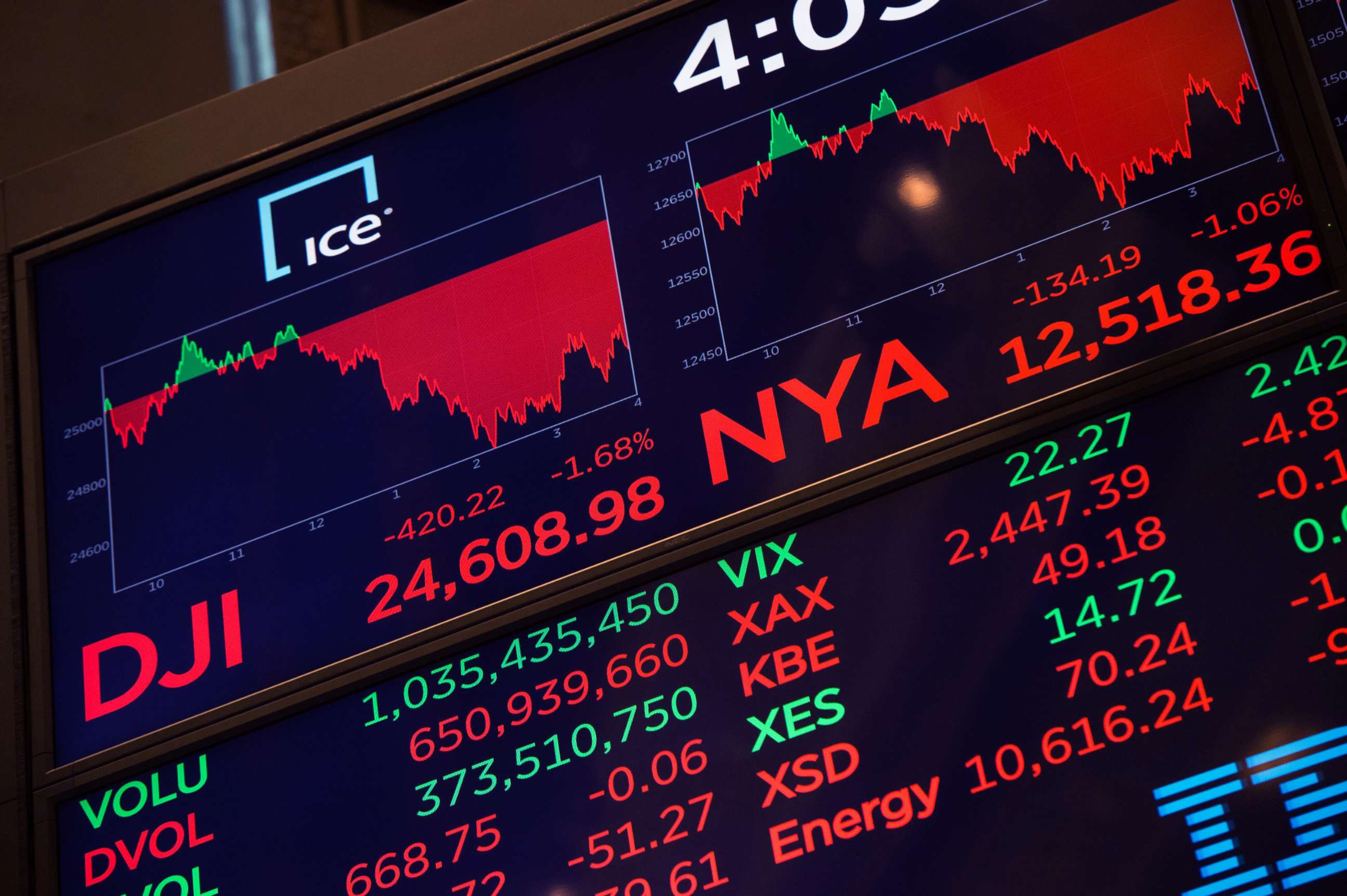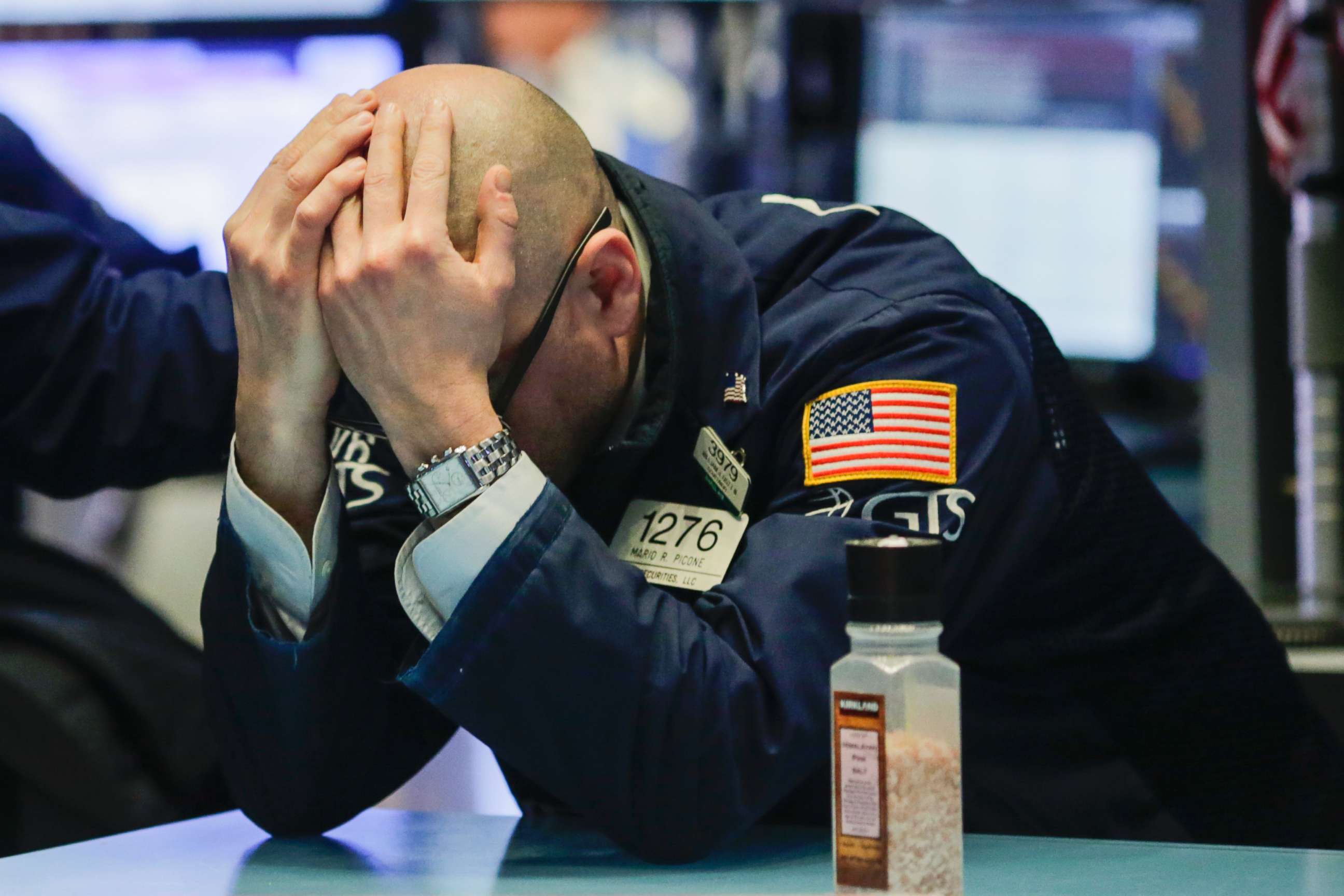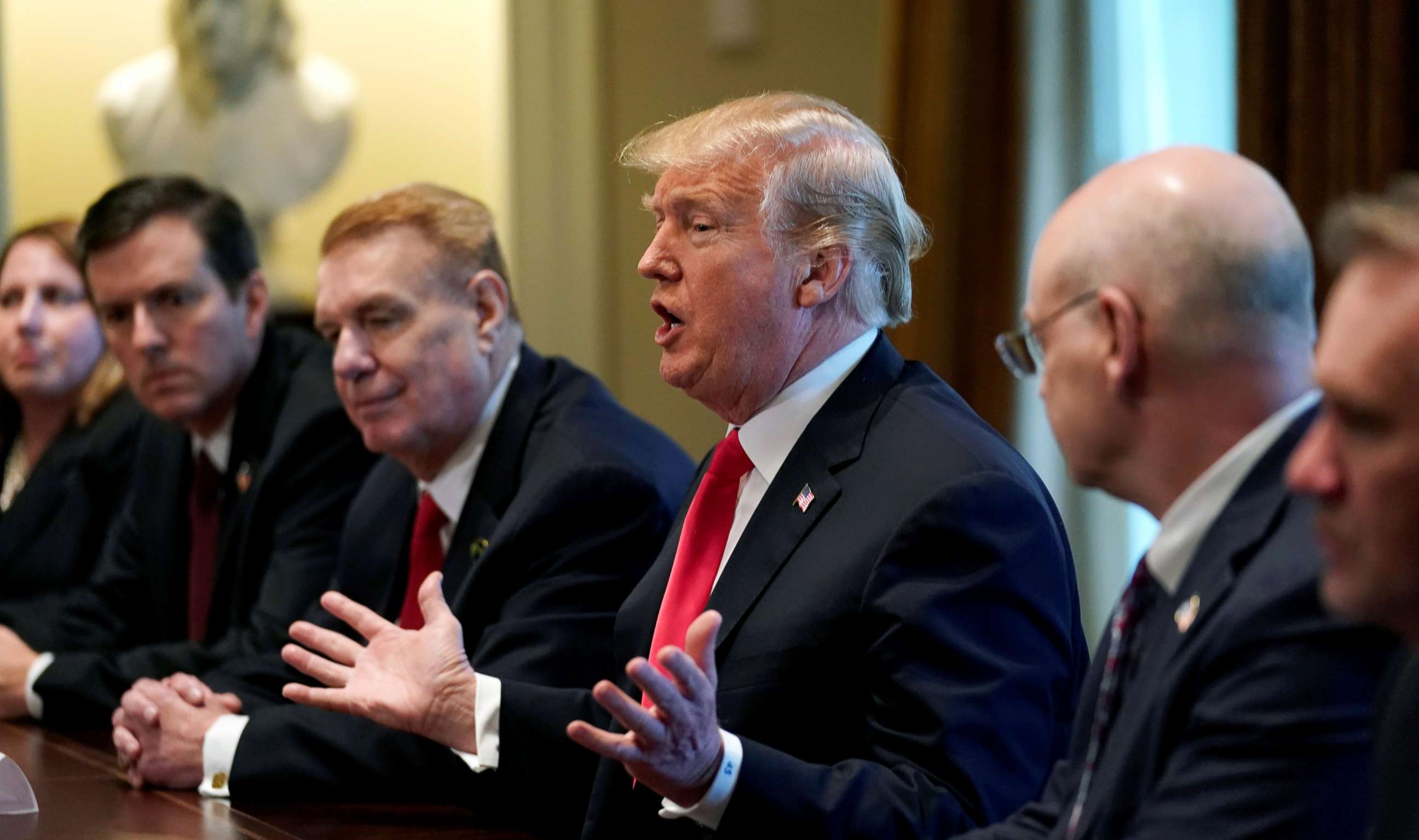Dow tumbles more than 400 points amid Trump tariff crackdown
Stocks took a tumble after the president's announcement.
— -- The Dow Jones Industrial Average fell more than 400 points today as Wall Street appeared concerned about a global trade war erupting over President Donald Trump's decision to impose stiff tariffs on imported steel and aluminum.
The Dow dropped 420 points, or 1.7 percent, to end the session at 24,608. The other major indexes also took a hit with the Nasdaq tumbling 92 points to 7,180 and the S&P 500 sinking 36 points to 2,677.

Just hours before the market closed, Trump summoned steel and aluminum executives to the White House to inform them that he will levy 25 percent tariffs on steel and 10 percent penalties on aluminum imports. He said the tariffs will be imposed for "a long period of time."
"What's been allowed to go on for decades is disgraceful. It's disgraceful," Trump told business leaders in the Cabinet Room. "You will have protection for the first time in a long while and you're going to regrow your industries."

Increased foreign production of aluminum and steel, especially by China, has driven down prices and hurt U.S. producers, creating what the U.S. Commerce Department has called a national security threat.
There was no immediate indication that China would retaliate with counter-tariffs, but many on Wall Street fear that is what the future holds.
China has already started looking at limiting imports of U.S. grain that go to feed livestock, and the European Union is reportedly exploring whether to slap sanctions on Harley-Davidson, which is headquartered in Wisconsin, the home House Speaker Paul Ryan.
Jean-Claude Juncker, president of the European Commission, said in a statement: "We will not sit idly while our industry is hit with unfair measures that put thousands of European jobs at risk."
Chrystia Freeland, Canada's minister of Foreign Affairs, released a statement, saying, "Canada would view any trade restrictions on Canadian steel and aluminum as absolutely unacceptable."
"Any restrictions would harm workers, the industry and manufacturers on both sides of the border," Freeland said. "The steel and aluminum industry is highly integrated and supports critical North American manufacturing supply chains. The Canadian government will continue to make this point directly with the American administration at all levels."

The tariffs, which could cut into the supply of steel and aluminum in the United States, will likely cause the cost of steel and aluminum rise and might prompt U.S. companies to pass on the added costs to consumers.
U.S. consumers could see the price of everything from sodas to paper clips and automobiles rise.
Companies like GM, which says 90 percent of the steel and aluminum in its cars and trucks is sourced from U.S. suppliers, will still likely have to pay more for those supplies.
Many Senate Republicans say they are not in agreement with Trump's tariff plan.
Sen. Orrin Hatch, R-Utah, is recommending the president "carefully consider all the implications."
"Tariffs on steel and aluminum are a tax hike the American people don't need and can't afford," Hatch said in a statement.
Meanwhile, U.S. aluminum and steel manufacturers saw their stocks post strong gains. Shares in U.S. Steel Corp jumped 6 percent, while shares in AK Steel Holding Corp rose 8 percent. Century Aluminum Co.’s shares climbed 7 percent.




